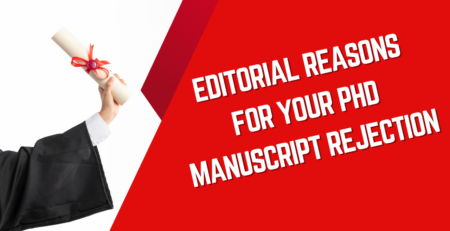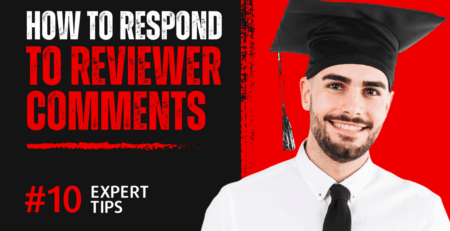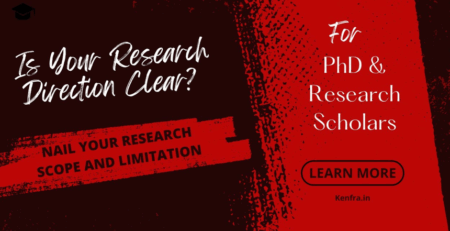5 Guidelines for Choosing an External Examiner for Your PhD
KENFRA Research Solutions2022-09-20T13:39:59+05:30You may have experienced it all during your PhD journey—late nights, tears, and frustration! Although finishing your PhD thesis is a success in and of itself, defending it is a significant occasion. PhD students frequently overlook the significance of selecting the best external examiner when preparing to defend their thesis becomes a priority. This article will highlight the significance of carefully selecting your PhD external examiner as well as the top five suggestions for doing so.

Why Is It Important to Pick the Right PhD External Examiner?
An unexamined thesis is not worthwhile writing, if we are to follow in Socrates’ footsteps. The choice of your examiner needs to be meticulous because the thesis examination is an object of study. The thesis defence is therefore what stands between you and the revered title of “Doctor.” An external examiner cannot be chosen by a PhD candidate. You can, however, recommend examiners to the academic unit. Since you have been working on the study for years, you are familiar with its complexities and the people who are best suited to evaluate it. You can try your hardest to present your thesis defence in the strongest possible light, but if you do it in front of the wrong examiners.

What Actually Occurs When You Don't Pick the Correct Examiner?
Examiners typically take two to four weeks to study your submitted thesis and accept it for defence as part of the PhD examination procedure. A poor selection of external examiners cannot undo the countless hours you’ve spent researching and finishing your thesis.
If your examiners do not understand the purpose of your thesis and the scholarly context of your work, your PhD thesis defense could end in disaster. The results of your choice of the incorrect examiner may be uncertain. It can indicate a tense conversation between you and the examiner. Additionally, it could mean spending months reworking your thesis to make it understandable to your examiner. Finding an examiner who can quickly award your PhD without exercising sound judgement is not the goal. Instead, it’s crucial to identify examiners who are knowledgeable about your field of study and capable of making informed decisions.
Points to Keep in Mind When Choosing Your Examiner
It’s not as difficult as it may seem to choose an external examiner. During your literature review, you most likely got to know your examiner.
Here, we go over the top five factors to take into account when choosing an external PhD examiner.
1. Knowledge of Your Research Field
Only scientists working on related issues can be regarded as experts to evaluate your work. As a result, your first step should be to compile a list of academic authors who are relevant to your field of study and locate them on various social networking sites like LinkedIn, ResearchGate, Academia.edu, Altmetric, Google Scholar, Mendeley, etc. Create a brief document with this information and submit it to your supervisor and department for review. Include your justification for choosing them to serve as an external examiner for a PhD. It’s preferable to give your supervisor the examiner profile file at least six months before you intend to submit in your thesis.
Finding a knowledgeable examiner could become challenging in a unique circumstance if your research intends to cover several themes. Select examiners who will cover at least a few of the key topics you mention in your thesis in this situation by striking a balance.
2. Conflicts of Interest: Be Cautious
To safeguard candidates, examiners, and the institution from any potential bad perceptions during the PhD thesis examination, conflict of interest procedures have been established. The external examiner might have a conflict of interest with the institution or the supervisor even if they don’t have one with you. You might have developed relationships with multiple experts in your sector while conducting study. Conflicts of interest alone do not automatically disqualify someone from serving as a thesis examiner. You can let your supervisor know about these networks and relationships; it’s up to them to evaluate whether or not it represents a conflict of interest.
3. Status in the Community
Your PhD external examiners will develop into important contacts when you begin looking for employment and publishing possibilities. They might certainly act as references on your resume. Your Profile will surely help you tremendously if it includes the name of a well-known and respected examiner as a reference. A knowledgeable and respected examiner may also recommend journals, conferences, and other venues for publishing your work and give you advice on how to proceed with your subsequent study. A retired or nearly retired examiner should not be approached, nevertheless. In the long term, they might not be there to assist you.
4. Expertise as a an external PhD examiner
An examiners experience plays is crucial when evaluating your work. Because they may have already reviewed similar work in your field, the more theses your examiner has likely read the more experienced they are. These examiners are more likely to link your thesis to a benchmark for a more accurate assessment. Additionally, it is well recognised that seasoned examiners are more understanding than inexperienced ones.
5. Recognize different methodologies
It is likely that your prospective examiner, who has experience in the same sector, won’t entirely concur with your approach of analysis. It is crucial that you become familiar with their work and methodology in such circumstances. You can use this to determine whether or not they are likely to agree with your interpretation of the data. In the event that your research approach verifies your findings, your PhD external examiner must be willing to accept it.
Important Questions to Think About When Choosing Your PhD External Examiner

- Does the PhD external examiner meet the minimum requirements for the degree they are evaluating? For instance, a PhD graduate is required if an external examiner is evaluating a PhD thesis.
- Do they have a conflict of interest with the student, the teacher, or the college?
- Are they well-known in the industry?
- Can they offer helpful criticism to improve the thesis?
- Do they function as a journal or book editor or reviewer?
- Will they aid in the development of your research career?
Finding an examiner to provide you with strategic help is one of your worries, but it’s not a major one. Your search should rely on people who possess knowledge and are qualified to comment on your thesis. By using these guidelines, you can make the process of selecting your external examiner simpler. Tell us about the difficulties you had when approaching your examiners to defend your thesis.










Leave a Reply